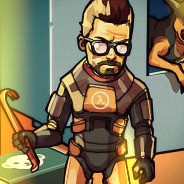с тестом :) TEST 2 (2nd term)
I. Change the sentences using Participles
1. When he was asked, he answered that he could not come.
2. The demonstrator, who protested violently, was led away by the police.
3. A noun is a word that denotes a person or a thing.
4. The machine which Mr. Brown invented is rather good.
5. At last he succeeded in stopping the horse and dismounted.
6. The passenger was fined as he had no ticket.
7. The boy answered nothing when he was asked about his parents.
8. She tore up his letter and said: ‘I’ll never talk to him again’.
9. When he was told about the decision he was very glad.
10. People had listened to the concert and were very pleased with it.
11. While he was writing a report he looked through many reference-books.
12. They enjoyed their stay here very much and decided to go there again the following summer.
13. As the soldiers had been wounded they were taken to the hospital.
14. After we had spoken to the teacher we translated the text.
II. Put the verbs in brackets in the form of the Participle
1. (to achieve) certain success in his life he decided to get married.
2. The (to develop) science raises more and more important questions for the further discussion.
3. (to conduct) this research he came across some interesting phenomenon.
4. They couldn’t agree with his point of view (to express) so illogically.
5. The data (to discuss) at the seminar are of particular importance.
6. (to see) him unexpectedly she crossed the street to be lost in the crowd.
7. (to take off) our shoes we crept cautiously into the room.
8. I have heard that piece (to play) many times.
9. (to speak) words are often more powerful than writing.
10. Observations (to make) with the help of special techniques gave different results.
III. Open the brackets
1. The seven kids (to open) the door to the wolf because the wolf (to change) his voice so that it (to sound) like their Mother’s.
2. In the end the silly dog (to lose) the bone that it (to find) on the road.
3. A young man who just (to return) from his travel in Africa (to show) his girl-friend the skin of a lion that he (to kill), and she (to ask) to tell her how he (to do) it.
4. One day Isaak Newton (to ask) a friend to lunch, but as he (to be) very absent-minded, he soon (to forget) that his friend (to come), and (to continue) working. The visitor (to understand) what (to happen), and, just for a joke, he (to eat) up all that the servant (to bring) for them two. When Newton at last (to appear) in the dining-room and (to see) the empty plates, he (to decide) that he simply (to forget) that he already (to have) his lunch, and so he (to return) to his work.
5. Everything (to be) quiet: darkness (to fall).
6. I started asking my friend about it, but it (to be) useless: he (to forget) about everything.
I am proud of my ability to pack. Packing is one of those things that I (to feel) I (to know) more about. So
I told my friends (to leave) the whole matter entirely to me. They (to agree) and (to sit) down. This (not
to be) what I (to intend). Ok, I (not to say) anything but I (to start) packing. It seemed a longer job than
(to think) it to be. When I (to finish) at last Harris (to wonder) if I (to be going) to put the boots in. I (to
look) around and (to find) I (to forget) them. I (to open) the bag and (to pack) the boots in. But when (to
close) the bag, George asked if the soap (to be) in. I couldn’t remember if I (to pack) it or not. So I (to
turn) everything out and, of course, I (to find) it.
VI. Translate into English using Participles
1. Пытаясь закрыть дверь, она сломала ключ.
2. Пассажиров регистрацию, просят пройти на посадку.
3. Оставив вещи в отеле, они отправились осматривать достопримечательности.
4. Надев пальто, она двинулась к выходу.
5. Фильм, который сейчас показывают по телевидению, очень старая забавная комедия.
Ответы на вопрос:
ответ:
answer
объяснение:
guide: (you/be) have you ever been to london?
tourist: i have been to lots of places but this is the first time i came to london.
guide: you will definitely love it, i promise! there are a lot of places of interest here. i’m going to give you brief information about some attractions in london.
tourist: that will be interesting. i hope the information is useful?
guide: may i offer you a cup of coffee?
tourist: thank you but i have already drunk coffee in the lobby bar.
guide: you are lucky. as for me i have not drunk coffee since breakfast. i have many appointments today. so let me get down to business. have you ever made a tour on a bus with open top? such buses run past most of the sights offering visitors the chance to view them in comfort.
tourist: i have been dreaming about it since my childhood. and what about watching prime minister's question time in the houses of parliament?
guide: oh, it’s one of the most popular things to do in london on wednesdays at noon but you should purchase the tickets in advance. you can buy it in our agency at a lower price.
tourist: great! of course i will take it. i have not seen a member of the royal family before. is that possible to see the queen?
guide: people crowd at buckingham palace to see somebody of the royal family. but you can explore buckingham palace. state rooms are open to the public each summer.
tourist: thank you for the information. can you leave me the brochure with the description of the excursions that you offer? i will call you to book some of them.
guide: here you are. i look forward to hearing from you.
Популярно: Английский язык
-
Вставьте many или much 1. he bought furniture for his new flat....
 зюзя2427.08.2020 21:31
зюзя2427.08.2020 21:31 -
Нужно вставить пропущенные слова: fast, tisket, steal, find, cry,...
 Dariailko22.10.2022 08:14
Dariailko22.10.2022 08:14 -
Составьте по 2 любых вопроса к следующим предложениям которые ниже.предложения...
 lisovasvitlana1509.06.2021 22:30
lisovasvitlana1509.06.2021 22:30 -
)) complete the following sentences with the appropriate word. 1....
 lakomka201830.08.2022 01:39
lakomka201830.08.2022 01:39 -
Розповідь про тваринку що вона вміє ійською мовою...
 Aannddrreeyy2209.10.2022 06:28
Aannddrreeyy2209.10.2022 06:28 -
Write what Nurzham can( t)/is(n t) able was(n l) able to do when...
 Shakhinya0106.12.2021 17:08
Shakhinya0106.12.2021 17:08 -
Найдите площадь квадрата,сторона которого равна 5 см...
 Фаньчуфкат25.10.2022 18:21
Фаньчуфкат25.10.2022 18:21 -
I … over the phone when they brought me the letter...
 danayamirnaya02.03.2022 07:40
danayamirnaya02.03.2022 07:40 -
Учебник English in Mind Second edition Student s Book ...
 ElyalyaЗ15.11.2021 11:10
ElyalyaЗ15.11.2021 11:10 -
ОТВЕТЫ!...................... ...
 lada4812.02.2022 14:00
lada4812.02.2022 14:00
